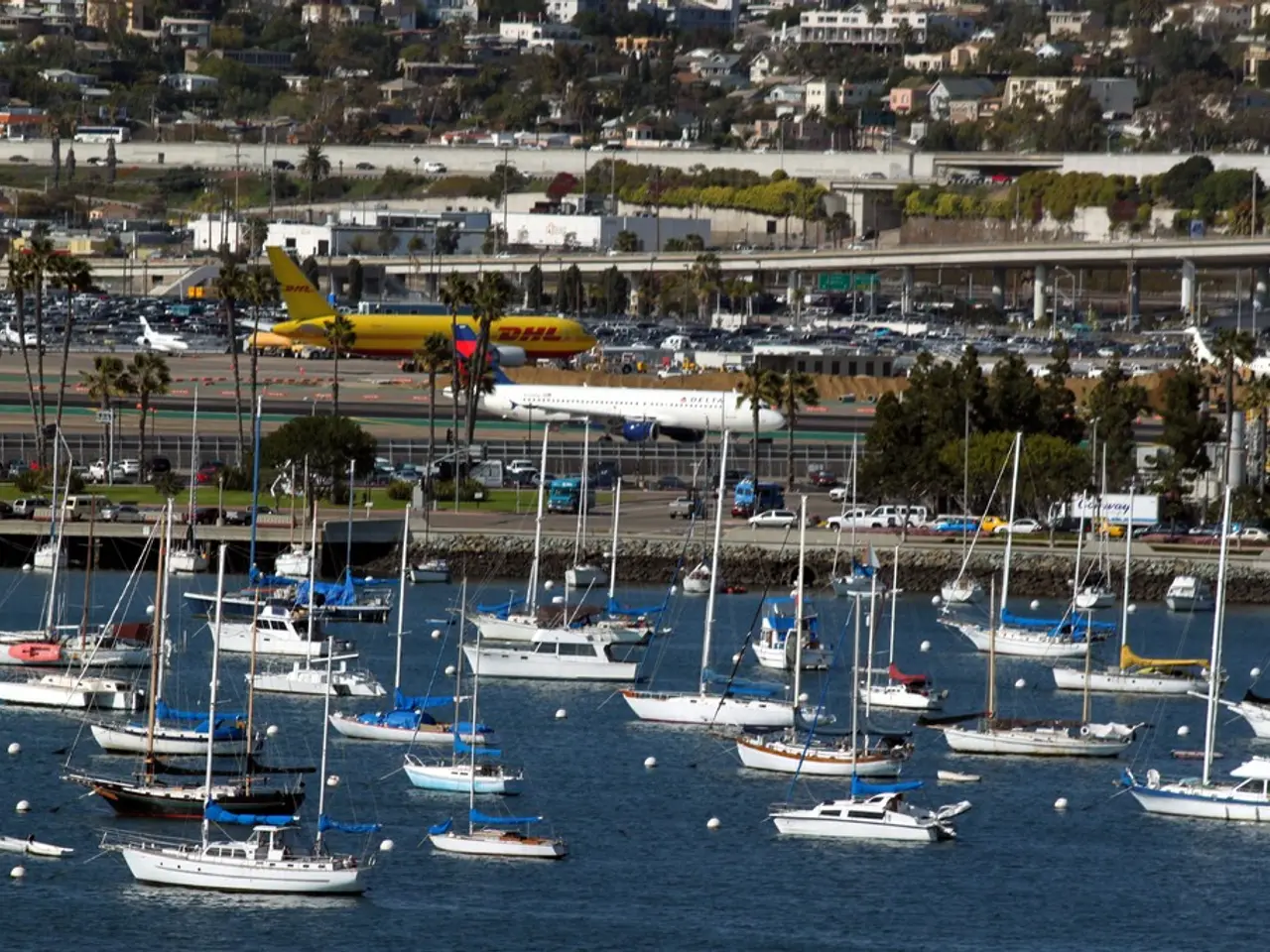Sailing vessels in the Vendée Globe race are justified in their decision to disregard a complete foiling regulation
The IMOCA class, known for its high-speed offshore racing boats, has been making waves in the sailing world by striking a balance between technological advancement, cost, and sustainability. This approach is particularly evident in the Vendée Globe, an extraordinary sailing event that recently saw a record entry of 40 boats^5.
In a bid to promote sustainability, the IMOCA class has encouraged designers and builders to use panels produced using flax fibres and a green resin for some of the non-structural parts of the boats^1. This eco-friendly initiative does not compromise the performance of the boats, demonstrating that sustainability and speed can coexist.
The class's focus on innovation is most evident in the development of foiling boats, which lift the hull out of the water to reduce drag and increase speed^2. This breakthrough has been achieved while remaining within the defined class rules, avoiding an expensive "arms race" in design.
The performance of the IMOCA 60 yachts has seen a significant increase—nearly 50% faster than models from 2015/2016 under optimal conditions—without abandoning competitive equality^1. The latest designs emphasize flying earlier on foils and maintaining flight longer even in rough sea conditions^1.
Cost and safety aspects are managed through technological solutions such as fully enclosed cockpits and protective gear, enhancing competitiveness through reliability and survivability^3. The IMOCA class's "box rule" philosophy enables diverse design concepts that compete fairly, as seen in The Ocean Race Europe where multiple foiling designs race closely together^4.
To further reduce the class's carbon footprint, teams that share moulds are credited points, and the class has voted against using a T-foil rudder due to cost considerations^6. The IMOCA class has maintained its focus on innovation while promoting sustainability for over 30 years^7.
The Vendée Globe attracts tens of thousands of fans, some of whom camp out in winter to see the boats pass^5. The cost of re-thinking the next generation of 60-footers could be as much as €2-3 million for a full facelift^8. Despite this, the class remains sensitive to costs and preventing a technical arms race that would fragment the fleet.
Decisions in the IMOCA class are made democratically, with the sailors and owners deciding the rules^9. This democratic approach ensures that the class remains responsive to the needs and concerns of its members while maintaining its commitment to innovation, sustainability, and fair competition.
- The IMOCA class's eco-friendly initative, using flax fibres and a green resin for some non-structural parts, demonstrates that sports performance and sustainability can coexist.
- The IMOCA class, having focused on innovation while promoting sustainability for over 30 years, aims to further reduce its carbon footprint in sports, crediting points for teams that share moulds and voting against using a T-foil rudder due to cost considerations.






